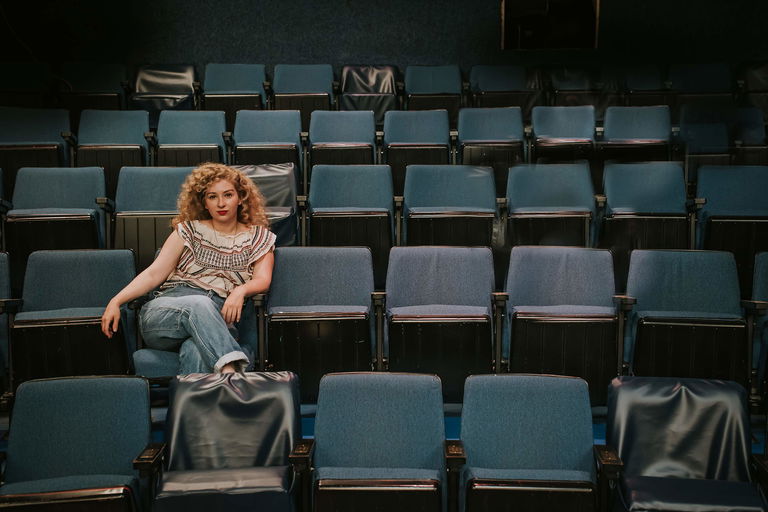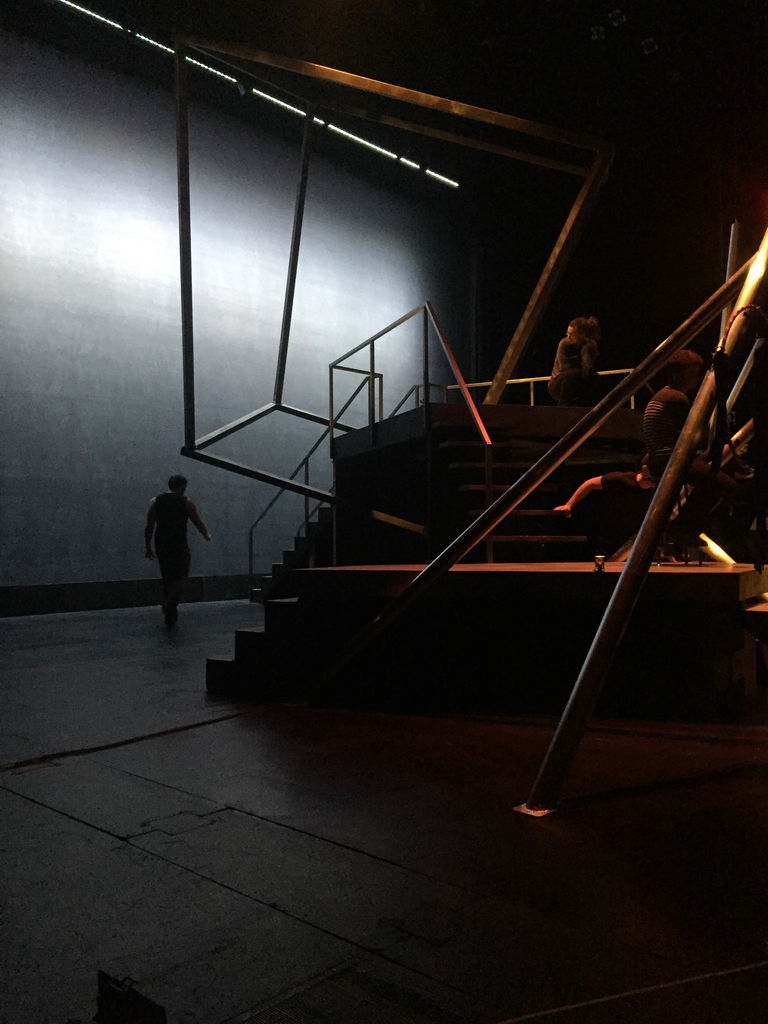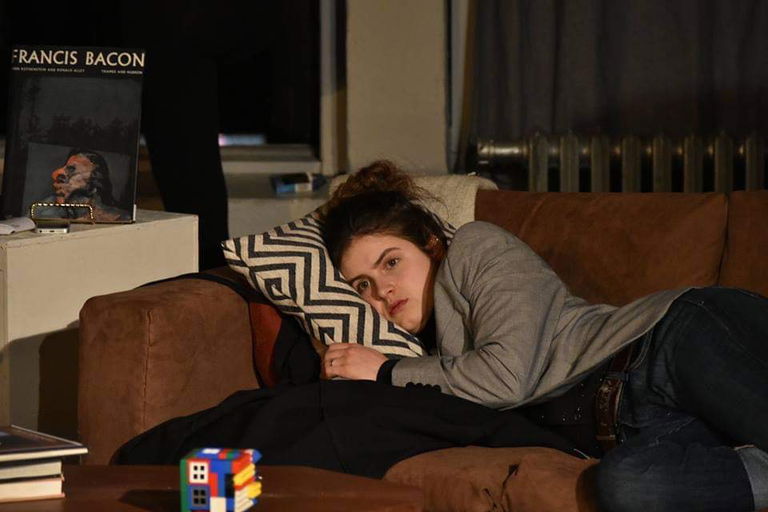
Reimagining Community and the Workplace of Theatre
Natércia Napoleão for Culture Days
Jun 29, 2021
Imagine…
“You can write your own play and create your ideal role!”
“You can produce your own play and program something that speaks to you!”
“You could start your own theatre company and run it however you want!”
These are some examples of advice I have received over the years. Advice that seems caring and encouraging, but risks relegating a struggling voice to the fringes of the community. There are vital opportunities to participate in the growth of our colleagues and they should not be missed.
Theatre communities tend to segregate; groups of like-minded individuals form and become entrenched. It’s a colonial habit—we find a patch of grass, call it our land, and guard it. Do you see a vacant spot? Perhaps you will be welcome there. But in the long run, cliques are unhelpful for building a healthy theatre community.
Theatre is where we tell stories that reflect the spectrum of human experience. I imagine emerging from our secluded corners and meeting in a middle space where we can experience that spectrum.
In this time of racial reckoning in theatre, meeting in the middle has become more critical than ever. Our diverse worldviews, experiences, strengths, and imperfections allow us to help one another on our respective journeys in this difficult profession. Shared spaces are sometimes uncomfortable, but they are the place of the community.
Imagine… a renewed community.
Community is a word we use so often that its meaning is presumed. But, we need to ask: how do we define our theatre community? What are our values? Whose voices are emphasized? Who does our community serve? What value do we give one another?
I have lingered on these questions at various times over the years. As I began to frame them in the context of my experiences as a racialized immigrant-settler, the questions grew until they finally needed to be expressed. Early tentative conversations expanded to include several individuals from marginalized communities. One-on-one or in small groups, we shared our observations and stories. I began to feel able to translate my thoughts into actions.
My process of reimagining theatre began with writing letters about these issues. I will never forget the private disclosures regarding systemic racism shared with me in this process: dozens of artists reached out to share, but were afraid to speak publicly. I felt a tremendous sense of responsibility to make my theatre community a better place.
An old theatre adage states that one must leave town before they are valued in their home community. I imagine a time where that is not the case.

COVID-19 dealt the theatre community a severe blow, but it also gave our community a crucial opportunity. Many have wondered, why now? Why bring a conversation on racial equity and equality now when the industry is struggling? Power structures are intimidating; we are often silent (or silenced) in their presence. It’s much simpler to share stories and express disagreement when there is no work to be gained or lost.
But the deeper dynamics of gatekeeping aren’t affected by a pandemic. There is power in wielding money and contracts, so it quickly becomes safer to remain passive. If those who have the financial means to sustain you are at odds with those challenging the status quo, where do we place our support? To whom do we have a responsibility?
Imagine… a healthy workplace.
Early in my career, I elevated all my relationships to the status of family or close friends, to the detriment of my self-advocacy. It’s not that deeper relationships aren’t welcome, but we can forget that we are each other’s co-workers. As professional colleagues, we need to uphold standards of employment that reflect the industry we want.
“…employers have an obligation to create an inclusive workplace. This includes removing discriminatory barriers that prevent individuals from getting a job or promotion; accommodating employees who have special needs; and ensuring that the work environment is free from discrimination.” (Alberta Human Rights Act)
I’m reimagining professional industry where meaningful engagement with marginalized communities results in fewer barriers. When barriers go unchallenged because challengers risk losing their livelihoods, the industry suffers as much as the individual. The theatre industry suffers a lack of credibility when it fights positive change.
Anyone can forget their responsibility and connection to a community, including marginalized artists. We are all flawed and capable of oppressing each other in this competitive environment. How do we open the doors to alleviate some of that competition?
Can theatre companies who receive local, provincial, and federal public arts funding cast a wider net to find their talent? Open calls for auditions are not always so open; every community has examples of companies that hold auditions yet continually hire the same people. Leadership positions often draw from a similar pool of insiders, without much effort to consider new voices. Accessing a path to influential positions is nearly impossible for many multi-talented artists.
Imagine… taking chances on people.
I’m reimagining a theatre community where our latent talents get a chance to blossom, where we look to the margins of ourselves and our community: actors can be dramaturges; designers can be producers. We can be fluid as theatre artists. We must allow for horizontal and vertical growth. An artist should be able to broaden their horizons as well as deepen their practice. Artists yearn to stretch. When we put ourselves or others in boxes, we kill the little opportunity for surprising new directions. We revert to the way something has always been done instead of fostering a spirit of pathfinding.

I’m reimagining my artistic voice. I’ve been moving towards directing, dramaturgy, advocacy and writing. As I challenge myself, I feed my creativity, which makes me a better artist, which enhances my ability to be of use, and the cycle continues. With a broader range of abilities, I have more to offer my colleagues, who reciprocate because they are on their own paths. Fostering meaningful growth in individuals can exponentially grow their ability to give back to a community.
I’m reimagining artistry on my terms. It’s taken me years to unpack how I’ve been conditioned away from the natural wonder, creativity, and curiosity that drives art. In expanding beyond my usual practice, I am finding my path.
This path necessitates supporting others along the way. As long as we have a shared space where we can meet and co-create, I think we will be ok. I will meet you there.
Cover image of Natércia Napoleão—photo credit: Brianne Jang (BB Photography) & April M. Killins
This article is part of a special blog series featuring writers and creatives from across Canada (and beyond!) with stories that both highlight and celebrate Culture Days’ 2021 theme, RE:IMAGINE. Explore more stories below.
- The Road Less Travelled: Three artists reimagine success and career. by Linh S. Nguyễn
- Arts in Motion by Aaron Rothermund
- Reimagining Public Spaces: The Share-It-Square in Portland, Oregon by Laura Puttkamer
- Refresh: How a Year on Instagram Redefined Artistic Communities by Eva Morrison
- RE:PURPOSE by Mike Green
- Recalibrating: A Look at Opera InReach by Anya Wassenberg
- Reimagine—How the Disability Community Accesses the Arts by Rachel Marks
- Helm Studios flips the for-profit music model to empower artists by Aly Laube
- Curating INUA, Canada’s newest Inuit art exhibit by Carolyn B. Heller
- When Less is More: What Theatre Can Learn From a Year in Slow Motion by Megan Hunt
- RE:ORCHESTRATING Our Future: Advancing Sustainable Development Through The Arts by Ryan Elliot Drew
- RE:DEFINING Normal: A Prescription for a Canadian Cultural Landscape in Recovery by Valerie Sing Turner
- Empathy Machines?: Exploring the Relationship between Immersive Art Technologies and Feeling by Jozef Spiteri and Sunita Nigam
- La poésie pour vivre différemment la pandémie par Jérôme Melançon





